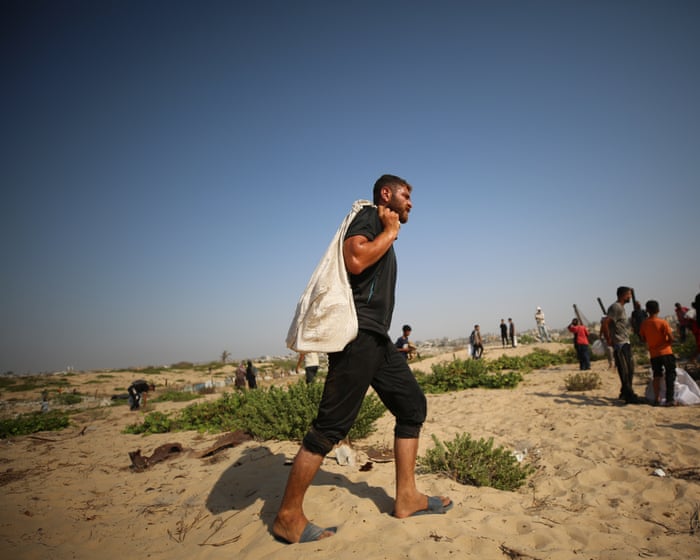Jordan and Israel have experienced their hottest nights on record, with nighttime temperatures in the region far exceeding what scientists describe as “hellish.” On Monday night, temperatures in Ghor es-Safi and Aqaba, Jordan, didn’t drop below 35°C (95°F), while in Amman, they remained above 31.8°C. In Israel, meteorologists recorded a historic nighttime high of 36°C in Sedom on Tuesday night.
“It feels like walking into a sauna,” said Fayha al-Shibli, a climate scientist at the University of Jordan, who lives in Amman.
Doctors warn that hot nights worsen the effects of heatwaves, depriving exhausted bodies of rest after enduring extreme daytime heat and contributing to a significant—yet often ignored—death toll.
In many European countries, “tropical nights” are defined as temperatures staying above 20°C, while in Spain, where extreme heat is more common, meteorologists describe nights above 25°C as “equatorial” or “torrid.” Recently, they’ve started informally calling nights above 30°C “hellish.” This week, parts of Jordan and Israel saw nighttime temperatures a full 5°C hotter than that threshold.
Shibli noted that 2025 has already broken records for nighttime heat intensity in many parts of Jordan, though not for duration or frequency. She admitted that she and her children were struggling but expressed gratitude for air conditioning at home, work, and in her car.
“The people who really suffer are those without air conditioning, like street cleaners and construction workers,” she said.
Daytime temperatures also reached deadly highs, nearing 50°C in Israel and the Palestinian territories. The Israel Meteorological Service reported a record-breaking 49.7°C in Gilgal, a settlement in the occupied West Bank, while Aqaba, Jordan, set a national record at 49.6°C.
In Gaza, temperatures exceeded 40°C. The UN agency for Palestinians (UNRWA) warned that the extreme heat was worsening an already dire situation, increasing dehydration risks. Limited electricity and fuel due to ongoing conflict and displacement left many without relief.
Health authorities across the Middle East urged people to stay in the shade and drink water.
“Extreme temperatures—above 40°C by day and 30°C at night—aren’t unheard of in the region, but this is certainly unusual,” said Nick Lee, a forecast manager at MetDesk. He explained that low-altitude areas, like Ghor es-Safi near the Dead Sea (350m below sea level), contributed to the extreme readings.
“As temperatures usually drop with elevation, these extreme low-lying areas can see much higher heat than sea level,” he said.
Heatwaves have become more intense, prolonged, and frequent as fossil fuel emissions trap heat and warm the planet. Shibli added that heatwaves can be even deadlier when…”These temperatures are much hotter than what people have experienced lately. While people can adjust to gradual changes, a sudden spike can catch them unprepared.”
FAQS
### **FAQs About “Brutal” Middle East Heatwave: Record-Breaking Nighttime Heat**
#### **General Questions**
**1. What’s causing the extreme nighttime heat in the Middle East?**
Climate change and urban heat islands are major factors, along with high humidity and persistent high-pressure systems.
**2. How hot are nighttime temperatures getting?**
In some areas, nighttime lows are staying above **95°F**, breaking previous records.
**3. Which countries are most affected?**
Saudi Arabia, UAE, Iraq, Iran, Kuwait, and Oman are experiencing the worst of the heatwave.
**4. Why is nighttime heat dangerous?**
The body needs cooler nights to recover from daytime heat. Without relief, heat stress and health risks increase.
—
#### **Health & Safety**
**5. What health problems can extreme nighttime heat cause?**
Dehydration, heat exhaustion, heatstroke, and worsened chronic conditions.
**6. How can I stay safe during extreme nighttime heat?**
– Stay hydrated.
– Use fans or AC if possible.
– Avoid strenuous activity.
– Sleep in cooler areas.
**7. Who is most at risk?**
Elderly people, children, outdoor workers, and those without air conditioning.
—
#### **Climate & Science**
**8. Is climate change making Middle East heatwaves worse?**
Yes, rising global temperatures intensify heatwaves, making them longer, more frequent, and more extreme.
**9. Why doesn’t it cool down at night like before?**
Higher humidity, urban heat retention, and warmer air masses prevent cooling.
**10. Will this keep happening every year?**
Likely yes—scientists predict worsening heatwaves in the region due to climate change.
—
#### **Practical Tips**
**11. How can cities reduce nighttime heat?**
More green spaces, reflective building materials, and better urban planning can help.
**12. What’s the best way to sleep in extreme heat?**
– Use lightweight, breathable bedding.
– Take a cool shower before bed.
– Keep windows open if outside air is cooler.



